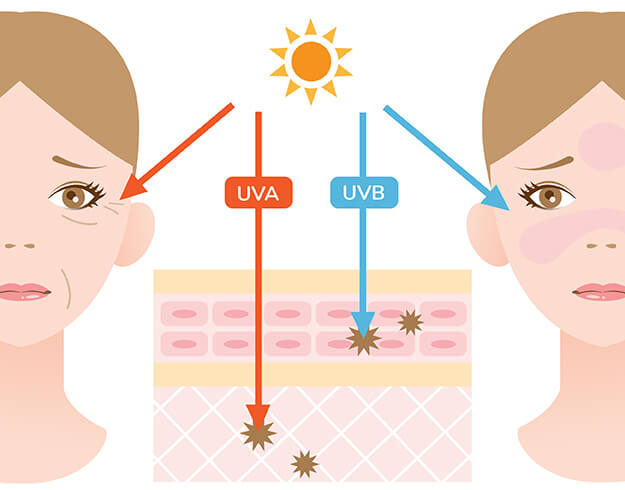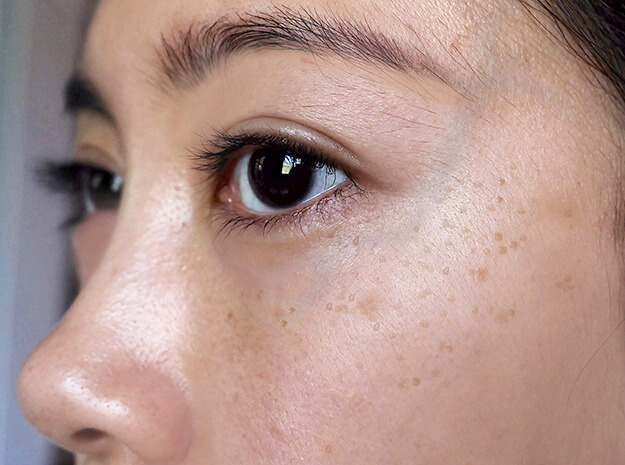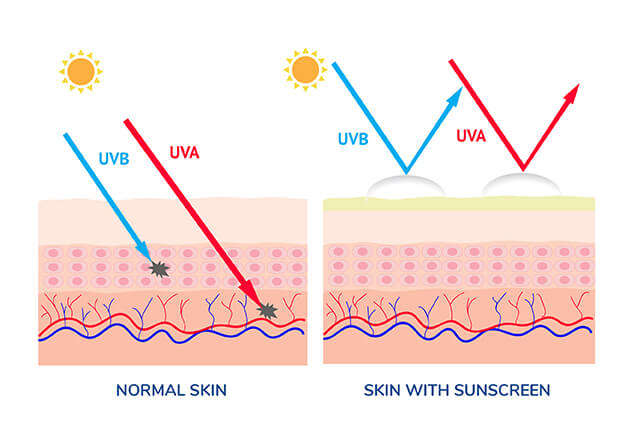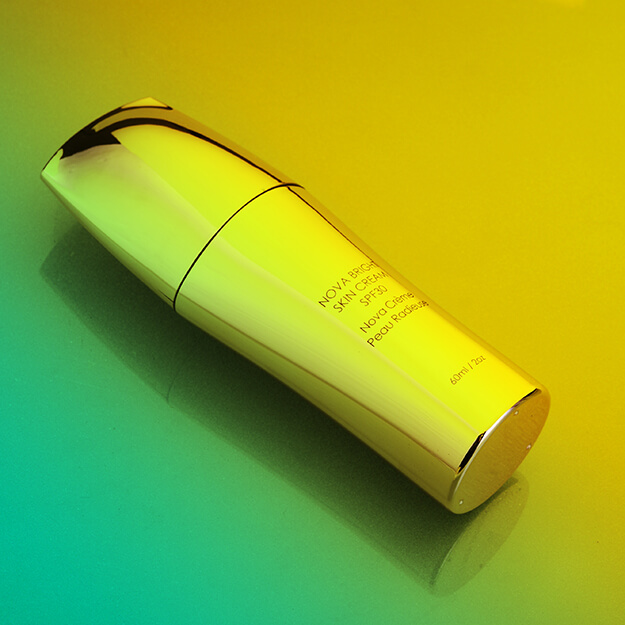Do you wear sunscreen every single day?
For most people, the answer would be no. However, once you understand exactly why a sunscreen is so important, it’s likely that you will begin to change your habits pretty quickly!
The Sun and Skin Cancer
Let’s begin with the most important reason as to why sunscreen is so essential…
You probably already know that the sun’s UV rays can lead to the development of skin cancer, but did you know that 90% of nonmelanoma skin cancers are due to sun exposure? In fact, more people in the USA are diagnosed with skin cancer every year compared to all of the other types of cancer combined.
But how exactly does sun exposure lead to skin cancer?
Well, the sun emits three types of UV rays, but the third type is one that you don’t really need to worry about:
- UVA – these rays penetrate quite deep into the skin. They can still lead to skin cancer, but they are primarily associated with skin damage and accelerated skin aging
- UVB – these are the rays that burn your skin, making you much more susceptible to developing cancer
- UVC – these are blocked by the Earth’s ozone layer, meaning that they don’t actually reach the surface of the planet. If they did, these would probably be the most dangerous rays of them all

The more your skin is exposed to these UV rays, the more damage will be caused to the DNA in each and every one of your skin cells. This accumulates over time, which then causes your skin cells to start growing abnormally. This is what leads to skin cancer.
Have you ever had a sunburn?
Just one sunburn, every two years or so, is enough to triple your chances of developing melanoma skin cancer.
A burn doesn’t necessarily need to mean blistering, peeling and painful skin either…
Even if your skin has only turned slightly pink and irritated, this is still a sign of a burn.
What makes this all even worse is that skin cancer can spread…
While melanoma usually form in the top layers of your skin, it doesn’t take long for these to start growing downwards, meaning deeper into your skin’s other layers. If the tumor happens to grow through a blood vessel or a lymph vessel, its cells can then break off and spread to various other parts of your body.
Don’t worry, there is still hope…
Research shows that regular use of sunscreen can reduce your chances of developing melanoma by 50% to 73%. This number rises even more when you practice other sun protection measures alongside wearing sunscreen.
The Sun and Premature Skin Aging
If skin cancer isn’t enough to scare you, the thought of wrinkles and sagging skin, far earlier than you would otherwise have been experiencing them, just may do it.
Did you know that up to 90% of skin aging is due to sun exposure?
This may seem shocking, but the sun really does cause so much damage to your skin’s structure.
How?
Well, your skin gets its structure from two main proteins; collagen and elastin. Collagen is responsible for how smooth and firm your skin is, while elastin affects your skin’s tightness and elasticity. Both of these proteins are key when it comes to maintaining a youthful complexion.
Unfortunately, when UV rays hit your skin, they activate enzymes known as matrix metalloproteinases, also known as MMPs. Once these MMPs become active, they break down the collagen in your skin.
Another enzyme that UV rays activate is called cathepsin K, and this then breaks down the elastin in your skin.
If all of that was not enough, UV rays also kill off the stem cells in your body, which then leads to your skin wrinkling and thinning. Stem cells are so important when it comes to the appearance of your skin, as these are what keep your skin looking youthful. Stem cells work by enabling fresh new cells to replace dead cells, meaning that if your stem cells themselves die off, your skin will rapidly decline.
The Sun and Dark Spots

Fine lines, wrinkles and sagging skin are not the only skin changes that you will experience due to sun exposure.
Dark spots, which are also known as melasma, are another common problem. These dark spots often look like freckles, but are usually larger.
Wondering how the sun causes dark spots on the skin?
Well, as you already know, the sun causes the skin to darken. This is all down to the melanin in your body, which is the pigment that gives your skin its color.
Over-exposure to the sun can cause your skin’s melanin production to rapidly rise, resulting in clusters of melanin forming under certain parts of the skin. This then gives those areas a darker appearance.
Of course, melasma can be caused by other factors too, including:
- Hormonal changes
- Certain cosmetic ingredients
- Genetics
However, even if your melasma has occurred due to one of the above causes, the sun will still exacerbate the problem.
If you manage to fade your dark spots, the sun can cause them to return, making them even harder to fade again.
How Does Sunscreen Help?

As you can see, the sun definitely doesn’t do your skin any favors.
Fortunately, you can prevent all of this by wearing sunscreen every day.
How does sunscreen actually work?
Well, there are two main types of sunscreen out there:
- Physical sunscreens – these make use of certain minerals, such as titanium dioxide and zinc oxide, that reflect the sun’s rays away from your skin
- Chemical sunscreens – these make use of specific chemicals that absorb the sun’s rays and convert them into heat, after which they are then emitted from the body
Which type is better?
This depends…
A chemical sunscreen is usually much easier to spread and apply over the skin. The way in which these formulas are created make it easier to add in other beneficial ingredients.
Of course, chemical sunscreens do contain strong chemicals, and these can often irritate sensitive skin. The fact that these chemicals also create heat in the skin can sometimes exacerbate certain skin conditions, such as rosacea and acne.
On the other hand, since a physical sunscreen does not allow the sun’s rays to come into contact with the skin, these tend to work better for those with sensitivities. Their formulas are also usually much less pore-clogging, making them better suited for those with oily or acne-prone skin too. However, their downside is that many formulas often leave a chalky cast on the skin, which means that the sunscreen can sometimes be visible, especially on darker skin tones. You may also find that a physical sunscreen rubs and rinses off more easily, meaning that frequent re-application is a must.
Choosing A Sunscreen
There are so many different sunscreens out there, so how do you know which one to choose?
To begin with, you need to first decide on whether you want a physical or chemical sunscreen. After reading the pros and cons of each one above, and keeping your skin type in mind, this should now be a relatively easy decision.
Next, you need to decide on how much SPF you want your sunscreen to have.
What exactly does SPF mean?
SPF stands for sun protection factor, and it basically refers to how long it will take for the sun to cause your skin to turn red. For example, a sunscreen with SPF 30 means that it will take your skin 30 times longer to burn than if you were not using any sunscreen at all.
To put it simply, a sunscreen with an SPF of 30 allows about 3% of the sun’s UVB rays to reach your skin, while a sunscreen with an SPF of 50 will allow about 2% of the sun’s UV rays to enter into the skin. As you can see, once you get to numbers higher than 30, the difference in the protection provided by the sunscreen is quite small.
However, you should also keep your skin type and tone in mind when choosing an SPF…
While SPF 30 may be enough for the average person, those with fair skin, who are susceptible to burning, may need something higher. If you already have an increased risk of developing skin cancer, then you may need a sunscreen that is even stronger than SPF 50.
You may have noticed that only UVB rays have been mentioned so far, and this is because SPF only protects against UVB rays, not UVA rays.
In order to ensure that your sunscreen protects you from UVA rays too, you need to make sure that you opt for a broad-spectrum formula. In some countries, there will be additional details about UVA protection on the bottle. These are usually indicated by a star rating, with a higher star rating meaning a higher UVA protection.
Sunscreen in the Winter Months
Many people usually spend more time indoors in the winter months, and, when they do spend time outside, the sun is rarely strong enough for them to consider using a sunscreen.
However, this is where the problems can start…
Although the sun’s UVB rays are much weaker in the winter, and don’t actually reach the Earth’s surface in certain parts of the world, the UVA rays are just as strong – even if you may not be able to feel them! The Earth is actually closer to the sun in mid-winter than in mid-summer, making wintertime UV rays so dangerous. Plus, the ozone layer is also at its thinnest in the winter, meaning that it filters away less UV rays than it does in the summer.
If you are spending time in the snow, then this is something else to take extra care with.
Why?
Because snow reflects back up to 80% of UVA rays, which means that your exposure to these rays is doubled when you are in the snow.
Even if you spend your winter months primarily indoors, around 50% to 60% of UVA rays can penetrate through glass.
Do You Often Forget to Wear Sunscreen?
While many may pledge to do better when it comes to sunscreen use, it is so easy to forget about this sometimes.
This is why it can be quite useful for your normal skin care products to contain an SPF, as this means that you automatically have a certain layer of protection.

Our Nova Bright Skin Cream does exactly that. It has been formulated with SPF 30, which should give your skin all of the protection that it needs. Plus, it also contains other botanicals, such as green tea extract, which will help to brighten and firm up the look of your skin.
Does Sunscreen Prevent the Body from Producing Vitamin D?
This is a concern that many people have, and rightly so. Your body can only produce vitamin D when it is being exposed to sunlight, so wouldn’t it make sense that sunscreen blocks your body from doing this?
Fortunately, this isn’t the case.
There are a number of studies that have been carried out on this subject, and they all point to the fact that using sunscreen does not lead to a vitamin D deficiency.
If you are worried, remember that it only takes ten minutes or so of sun exposure for your body to produce enough vitamin D for the day. Many people don’t actually apply their sunscreen generously enough to provide full protection, meaning that their skin is still able to produce vitamin D.
Don’t forget that vitamin D can also be obtained through fortified food, as well as from supplements. If you are worried about a vitamin D deficiency, speak to your doctor about whether a supplement may be suitable for you.
If you want to keep your skin looking fresh and youthful for as long as possible, wearing a sunscreen every single day is so essential. If you need any extra advice on how to incorporate a sunscreen into your skin care routine, feel free to get in touch with us for more information.



0 comments on “Why You Should Be Wearing Sunscreen Every Single Day”